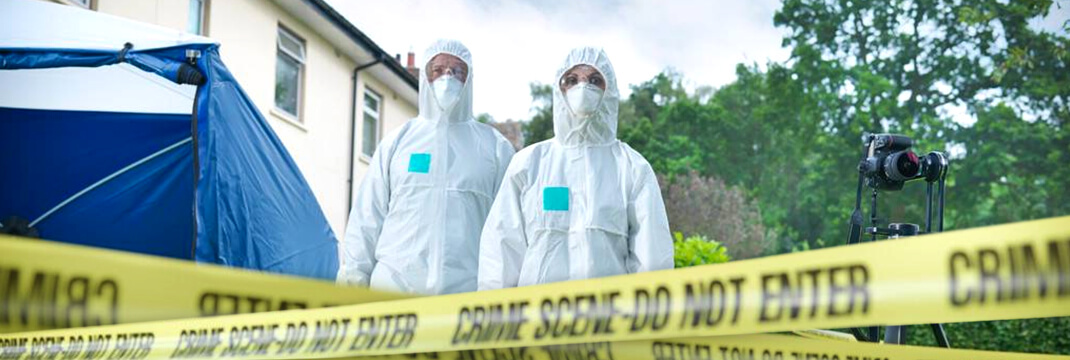
Theories and Methodologies
Introduction
Criminology is the scientific study of correction, prevention, and causation of crime. Being a branch of sociology, a much larger field, criminology incorporates such fields as biology, anthropology, psychology, psychiatry and other disciplines that try to elaborate crime. Criminology can be divided into the following categories:
1. penology – the study of prisons and their respective systems;
2. bio-criminology – the study of criminal behaviors biological basis;
3. feminist criminology – the study of women and their involvement in crime;
4. criminalistics – crime detection study with the help of forensic science.
Criminology plays a key role in regard to criminal law. It has helped to produce facts and arguments which have influenced judges, legislators, and other relevant officials in justice administration. Criminology claims its origins in writings that date back to the late 18th century. The writers were people who were filled with an urge to make reforms in the criminal justice of those times. They also wanted to make a change in the penal system which was taken as unfair, cruel, politically motivated and corrupt.
Theories of Criminology
These theories are important in understanding and analyzing criminality. Criminality refers to the factors affecting law-breaking and making and the consequences of breaking these laws. There exist many theories of criminology depending on the approach. The research project will focus on the following theories and will try to explain them.
Classical and Choice Theories
Cesare Beccaria was one of the founders of classical theories in the eighteenth century. These theories had been abandoned for some years but they were later reconsidered when the neo-classical movement emerged in the 1980s. These theories are governed by the three following ideas:
a) The freedom of choice of people. This idea is established on the fact that all humans have the capacity and the ability to choose what they want in their lives. This indicates that they have a right and are free to become greedy, jealous and possess vices that are not considered to be crimes.
b) Power to control one’s choices. If individuals are afraid of being punished, it is highly possible that they will control their criminal urges and tendencies. This is so because people can analyze situations and can tell whether the outcome of their actions will be either positive or negative.
c) Certainty, pace, and extent of punishment. This idea helps in deterring potential criminals from committing crimes.
Strain Theory
This theory is based on the argument that some individuals are unwillingly forced to indulge in crime due to specific social structures. This theory is attributed to Emile Durkheim, a well-renowned criminologist.
Cultural Deviance Theory
Albert Cohen was one of the key figures who tried to explain this theory. Cohen claimed that most youths could never work or survive in isolation and that they required company and influence from either their peers or from their elders. He argued that they required the world around them. He further explained that these people had to mix with other people who, in turn, might influence their behavior. It may happen so that even if they abhor crime, they might find themselves in the middle of it.
Social Process Theory
This theory focuses mostly on micro factors. The theory focuses on individuals and their impact on society. It also tries to emphasize that criminal activities can take place anywhere regardless of the social classes. Rounding up the theories, it should come to everyone’s attention that crimes mostly happen as a result of individuals making specific choices.
Methods of criminology
Historical Method
This is a descriptive method. It describes a research object or phenomenon in relation to its history or its time patterns.
Comparative Method
This method relates two phenomena with a motive of finding out whether or not they are connected. This method also makes a point that not all phenomena that might seem linked are actually connected.
Psychological Method
This method mainly consists of behavior observation, a tendency to mask behaviors and delinquents’ future behaviors. Some people claim that this method is not serious science since it is not easy for anyone to make changes or foresee human behavior or even know its real root cause.
Statistical Method
This method helps analyze crime using the following attributes; conceptual [the phenomenon’s identity], temporal [time] and territorial [location].
Struggling with your essay?
Ask professionals to help you!
Start Chat
Clinical Method
This method is mostly used in psychology. Psychology focuses on normal behavior but clinical psychology tends to focus on abnormal behavior. Criminologists usually apply this method in interviews while the person in charge takes notes. Psychologists then analyze the notes and come up with both a diagnosis and a prognosis of the individual.
Conclusion
Criminology is a significant science in modern society. Without it, most crimes would go unpunished or the punishment would get unleashed on an innocent person. Theories and methods of criminology help one understand criminology better as a subject. Criminology encompasses a vast number of theories and methodologies. Each theory and methodology has its own approaches, characteristics, and ideas. The research project will highlight the most common and worth studying aspects of criminology.



